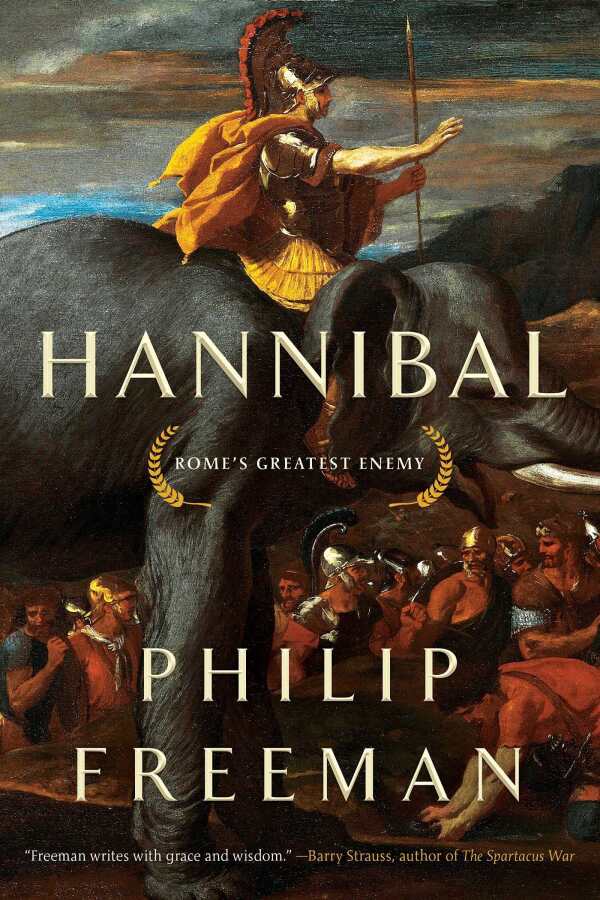Hannibal
Rome's Greatest Enemy
Roman historians have cast Hannibal Barca as a cruel, uncouth barbarian, but Philip Freeman’s panoramic biography Hannibal supplies evidence that the great Carthaginian military leader, whose strategic and tactical genius has been studied and emulated for centuries, was an educated statesman and diplomat, notable for his devotion to his country, family, and troops.
In the third century BCE, Carthage, a trading hub known for its sophistication and culture, struggled because of its attempt to buy peace with the Romans. Rome’s enormous appetite for silver led Hamilcar Barca, a legendary Carthaginian general, to Spain, where he took over Iberia’s rich silver mines. His eldest son, Hannibal, traveled with him; to do so, at nine, he had to vow eternal enmity toward Rome.
Freeman reveals that Carthage preferred negotiation and compromise to war. It had no army of its own and relied on mercenaries when needed. Meanwhile, Rome’s great war machine terrorized the world, slaughtering and enslaving people, razing cities, and cursing ruins. The book brings the horrors of ancient warfare to life, as armies with tens of thousands of men on each side, vast numbers of horses, and even elephants clashed in ruined landscapes. It also reveals that, despite his vow of enmity, Hannibal, unlike the Romans, was unafraid to show mercy and kindness.
The story of Hannibal leading his starving troops across the Alps in the dead of winter with battle elephants in tow is legendary, but is only one example of his uncanny ability to surprise his enemies with audacious strategies based not just on his enemy’s vulnerabilities, but on the weakness in his mind. Still, even the Romans, who both hated and feared him, admired Hannibal’s courage, brilliance, and humanity.
Hannibal is an epic biography of the military genius who nearly ended Rome’s imperial expansion.
Reviewed by
Kristine Morris
Disclosure: This article is not an endorsement, but a review. The publisher of this book provided free copies of the book to have their book reviewed by a professional reviewer. No fee was paid by the publisher for this review. Foreword Reviews only recommends books that we love. Foreword Magazine, Inc. is disclosing this in accordance with the Federal Trade Commission’s 16 CFR, Part 255.

